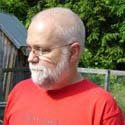I've appreciated your comments on specific remarks. They have been road markers helping me find my way through my confusion. I haven't written much here recently partly because I got to the point where I had to pause & think about W's whole project for a while. In that process I've been reading a little about where he comes from philosophically. At one level, I "get" Wittgenstein just fine. That's the level (don't like the buried metaphor there in the word level, but I'm on my first cup of coffee this morning) on which he demonstrates that the world does not obey logical formulas but makes sense anyway--or we humans speak sense into the world. William Barrett, whom I've mentioned before, points out the distinction between the highly derived forms of symbolic logic & the lived-logic of everyday practice. It's pretty clear that people were able to think "logically" before the invention of the syllogism & that consequently the project of early 20th century logicism was misguided, though weirdly powerful. The idea that ordinary thought as expressed in language somehow constitutes a Fall from a prelapsarian world of pure logical certainty seems a relic of 18th century Anglican (imperial) Christianity. [Imperialism is much on my mind these days.] After trying in the Tractatus to provide a diagram of Eden, Wittgenstein in PI is arguing with his early self, a self infused with Russell's influence. But I often get bogged down in the details of Wittgenstein's analysis, if that's the right word. (Maybe I'm just like my freshmen, who complain, "How come Job's friends have to repeat themselves so many times? It's so repetitious!) "Well, Children," I tell them, "the author is pretty clearly trying to tell you something with those repetitions: This stuff is important!" And of course most of them miss the fact that we are talking about repetition with variation. Which seems to be what W. is doing in PI.
Okay, I'm trying to size up PI the best way I know how. Which is as a work of literature. As you have said, one couldn't do this with Kant or Russell, but with Wittgenstein or Plato it makes sense. I was thinking again over the weekend about that remark of W's that philosophy ought to be written as much like poetry as possible. It is conventional wisdom among rhetoricians that the poetic use of language is expressive. But expressive of what? Since the high water mark of German & British Romanticism, the poetic & thus the expressive have been largely confined to the realm of human feeling & emotion. Though Romanticism advertised itself as liberating the poet from the constraints of period style & conventional morality, this freedom came at a price: one was required to abstain from thinking. (I'm exaggerating a bit here, but you get the picture.) Poets have often since found themselves locked in the velvet box of the emotions. But we now know (turning to one of your neuro-scientists, Anthony Damasio) that emotion & thought are inseparable. Anyway, getting back to my point about the nature of the expressive, the conventional view of a poem, say, is that it seeks to both express an emotion & elicit an emotion from a reader / listener.
Philosophical Investigations
Christopher Robinson & Joseph Duemer read Wittgenstein's Philosophical Investigations


0 Comments:
Post a Comment
<< Home